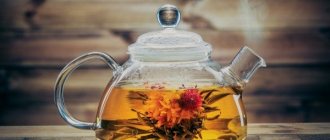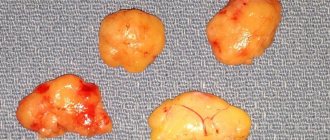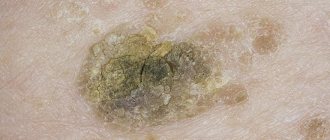A duodenal ulcer is a chronic disease that is a defect in the lining of the organ. Unlike erosive formation, it is deeper, affecting the submucosal and muscle tissue. Ulcerative wounds can be of different sizes - from a match head to a large apple. The prevalence of the pathology is quite high and in some regions is 15 percent. The disease occurs more often in men. Folk remedies are very popular in the treatment of duodenal ulcers. With their help, it is possible to accelerate tissue healing and normalize digestion processes.
Oatmeal jelly
Oats contain a lot of starchy substances, which, when cooked, turn into a decoction, which is why its consistency becomes viscous and sticky. Drinking jelly envelops the walls of the stomach, creating a protective film that relieves irritation and reduces the acidity of gastric juice. As a result, jelly quickly relieves heartburn, eliminates belching and nausea.
To prepare homemade jelly, add a glass of washed oats to a liter of water, bring to a boil and cook over low heat for half an hour. Then the boiled broth is brought to the same volume with boiling water, boiled for a few more minutes, cooled and filtered. Kissel should be drunk three times a day, half a glass half an hour before meals. The drug is extremely effective: within a day after the start of treatment, attacks of pain due to exacerbation of peptic ulcer disease cease.
Source: depositphotos.com
Vegetable juices
Freshly squeezed juices have the most pronounced healing properties. Peptic ulcer disease is well treated in such a popular way as vegetable juice. Vegetables such as cabbage, beets, carrots, and celery are used to prepare it. Cabbage juice is made from fresh and juicy cabbage leaves; they need to be passed through a juicer or crushed in a blender, and then squeezed through cheesecloth. The drink is taken 15-20 minutes before eating for 10 days. Then take a 2-week break and continue again if necessary.
Beetroot drink is made in the same way, but the finished concentrate must be diluted with clean water in a 1:1 ratio. You need to take this remedy half a glass 30 minutes before meals. Drinking celery is suitable for patients with low acidity, as it provokes the production of hydrochloric acid. This product is also taken before meals, half a glass. Chamomile oil helps fight inflammation and bacterial infections, helps reduce pain, and accelerates the healing of erosions and ulcers. Take 1 tablespoon 3-4 times a day before meals. Although such methods have proven to be effective, when treating the duodenum, it is better to coordinate their use with your doctor.
Potato juice, sea buckthorn and propolis
These drugs are used in the well-known course of therapy for peptic ulcer disease. Treatment consists of three stages:
- Take 100 ml of raw potato juice twice a day. To prepare one serving, two or three well-washed medium-sized tubers are grated on a fine grater along with the peel (“the eyes” must be cut out, as they contain a lot of solanine). The resulting pulp is squeezed through gauze. The juice should be drunk immediately after preparation; it cannot be stored. The greatest amount of substances beneficial to the stomach can be extracted from potato varieties whose tubers are red. Their juice, rich in biologically active components, has an anti-inflammatory and enveloping effect, optimizes the acidity of the stomach contents. Treatment lasts a week.
- Therapy with propolis tincture. A heaping teaspoon of “bee glue” crushed into powder is infused for a week in 100 ml of medical alcohol and then filtered. Take the drug three times a day, an hour after meals, diluting 25 drops of tincture in a glass of water. Propolis successfully relieves inflammation and promotes rapid healing of ulcerated areas of the mucous membrane. The stage lasts three weeks.
- Take a teaspoon of sea buckthorn oil three times a day for a month. You can make your own medicinal remedy from sea buckthorn seeds or use a pharmaceutical preparation. Sea buckthorn oil has a powerful healing effect. Its effect completes the process of scarring of ulcerated areas of the stomach wall.
This course of treatment can significantly improve the condition of ulcer patients. In the most difficult cases, it is recommended to do it twice a year.
Source: depositphotos.com
Traditional methods
To reduce discomfort and help the body cope with the disease, you can use traditional medicine methods, which can have a beneficial effect on the body’s condition no worse than medications.
But it is worth remembering that in any case you need to consult with a specialist who can correctly determine the degree of neglect of the disease.
We recommend reading: Symptoms of gallbladder inflammation and treatment with folk remedies
Preventive agents
As you know, the best treatment is prevention; for this it is necessary to drink one glass of calendula decoction a day for a month in early spring and mid-autumn.
To prepare it, you need to pour 2 tablespoons of dried flowers into 500 milliliters of water and boil for 5-7 minutes, then leave the resulting decoction in a dark place for 3 hours.
During exacerbation of the disease
In severe cases, you can use the following remedies:
- You can relieve pain with regular boiling water. If you have an ulcer, you can drink a glass of hot water in the morning on an empty stomach. This therapy is repeated for a month, take a 7-day break and continue taking it for 6 months;
- You can also drink kefir with melted butter instead of water; this product will coat the walls of the stomach, protecting them from acid;
- Any dry clay purchased at a pharmacy is diluted with water so that the consistency resembles jelly. One glass of this mixture is taken for a month, covered for 14 days and repeated for another month.
Remedies using honey
Honey is a natural antiseptic, so it restores microflora well. Honey is especially useful if the ulcer is accompanied by nausea, vomiting and diarrhea.
- A tablespoon of honey should be placed in a glass of boiling water and taken 1.5 hours before meals if the acidity is high and 30 minutes before if the acidity is low. This procedure is repeated for 60 days, while eating sweets is prohibited. If the body reacts to honey with heartburn, you can use milk instead of water;
- An herbal mixture with honey can effectively relieve inflammation. To do this, take fennel, chamomile, linden flowers and honey in equal proportions. The resulting mixture is poured with a glass of boiling water and left for 30 minutes. Then take a teaspoon immediately before meals;
- To ensure that honey brings only benefits and does not cause side effects, it is recommended to eat it together with cottage cheese or milk porridge. There is also an opinion that you need to consume at least 100 grams of honey per day.
Honey helps well in the process of scarring the affected areas.
Herbal infusions
The beneficial properties of various herbs have long been known; with the help of properly made infusions, you can treat or alleviate the symptoms of many diseases.
We recommend reading: Causes of gastric erosion and treatment at home
For duodenal ulcers, the following remedies are considered the most effective:
- In a deep container, mix 100 grams of plantain, celandine, string and St. John's wort and pour a liter of boiling water. The mixture is infused for a couple of hours and drunk as much as possible per day;
- For pain and heaviness in the stomach, prepare a mixture of a teaspoon of valerian root and the same amount of fennel, then add 2 teaspoons of mint and chamomile flowers. The herbal mixture is poured with hot water and left for 30 minutes;
- In one container, mix 50 grams of fennel fruits, marshmallow roots, medicinal chamomile flowers and licorice root. The herbal mixture is poured with a liter of water and simmered over low heat for 30-40 minutes. After the broth is ready, cool, filter and drink 100 milliliters each time before meals;
- This decoction is prepared only in enamel containers. Mix a teaspoon of fennel fruit and caraway seeds, then add a tablespoon of peppermint. The product is drunk 3 times before meals; it helps to get rid of pain and spasms.
Herbal treatment is very popular in folk medicine, this is due to the fact that they can rarely harm the body, but at the same time bring great benefits.
Cholecystitis in adults: symptoms and treatment.
GERD - what it is and how to treat it correctly.
Effective folk remedies for Helicobacter pylori.
Oils
Treatment can also be effectively carried out using various oils:
- One teaspoon of sea buckthorn oil is mixed with 2 tablespoons of a 2 percent soda solution. The resulting mixture is drunk 3 times before meals. The course of treatment is 30 days;
- For 3 weeks, drink a teaspoon of nut butter half an hour before breakfast, and repeat the same procedure 2 hours before dinner. After a 19-day break, the medication is resumed;
- A tablespoon of dry, crushed St. John's wort is poured with half a liter of olive oil and left in a dark place for 7-10 days. Take 1 teaspoon daily before breakfast.
Juice for ulcers
For duodenal ulcers, it is very useful to drink various juices, most often vegetable or herbal. There are several of the most popular such tools:
- Potato juice is drunk 800 milliliters per day four times. The course of treatment is 3 weeks, after which a 3-day break is taken and the procedures are repeated. It is very important to drink this juice on an empty stomach and in the morning on an empty stomach;
- Cabbage juice can be prepared using a meat grinder and gauze. They drink it 200 milliliters three times a day before meals for exactly 7 days, then stop for 3 days and repeat the intake until complete recovery;
- Carrot juice is also very useful; drink 50 milliliters a day;
- Aloe juice drunk before meals will have an excellent healing effect;
- Drink tomato, beet and pumpkin juice without limitation.
We recommend reading: Intestinal adhesions - symptoms and treatment, folk remedies for the disease
Most vegetable juices do not have a special taste, but their benefits cannot be denied.
Clay
White or blue clay, sold in pharmacies as a treatment for joints or for cosmetic use, is also successfully used for exacerbations of peptic ulcers. Clay particles help heal the surface of the mucous membrane and remove toxic substances from the stomach.
The healing drug is a solution that is taken 200 ml twice a day an hour before meals. At the beginning of treatment, it is prepared from a third of a teaspoon of clay and a glass of water. The amount of clay is gradually increased, bringing it to a full teaspoon. The course lasts 30 days and can be repeated after a 10-day break.
Source: depositphotos.com
Honey with walnuts
Not only healing, but also tasty. It is prepared from flower honey, finely ground walnut kernels and butter, taken in equal parts (300 g each). The components are placed in an enamel bowl and heated for 20 minutes in the oven at a temperature of about 100 °C. The well-mixed mass is taken one tablespoon three times a day half an hour before meals.
If the peptic ulcer is not in an advanced state, the medicine helps to get rid of the disease in the shortest possible time.
Source: depositphotos.com
Herbs that help fight ulcers
Some herbs can be used to treat stomach and duodenal ulcers. Let's talk about them in detail.
Large plantain
This is a plant that is found throughout Russia; it grows like a weed.
It has been proven that plantain stimulates tissue regeneration and has wound healing properties. In addition, it has a sedative and hypnotic effect. You can drink juice from fresh plantain leaves: drink 1 tbsp at a time. juice about 3 or 4 times a day. An infusion of its leaves is useful for ulcers: 1 tbsp. Pour 1 cup of boiling water over the ground leaves and leave for 10 minutes. Drink this tea 1 hour before your next meal. Plantain should not be used to treat peptic ulcers by those who have increased blood clotting or a tendency to form blood clots.
Yarrow
It helps get rid of pain and successfully fights flatulence. This plant has hemostatic properties and is one of the best among known herbs, as it eliminates bleeding instantly without forming blood clots. In addition, it also has bactericidal properties.
- Decoction. You can also prepare a decoction that is used to treat peptic ulcers. To do this, take 1 tsp. chopped herbs and pour 250 g of boiling water, put on low heat and cook for 5 or 10 minutes. You can drink 50 ml of decoction up to three times a day.
- Infusion. Drink it if you are bothered by intestinal pain. To prepare it, pour 2 tbsp into a thermos. dried herbs and pour 2 tbsp. hot water. Leave to infuse for 1 hour, drink the finished infusion a third of a glass before meals about 3 times a day. You can store the infusion in the refrigerator, but no more than 2 days.
- Infusion with calendula. It helps get rid of ulcerative defects that cover the duodenum or stomach. To prepare it, mix yarrow and calendula in equal quantities. 1 tbsp. Add 400 ml of hot water to this mixture and leave to infuse. Drink 50 ml before meals about three times a day. Children under 6 years of age and pregnant women should not be treated with this herb; it should not be used if the patient has increased secretion of the gastric glands.
Fireweed or narrow-leaved fireweed
Fireweed angustifolia is a perennial plant with beautiful bright pink or purple flowers that blooms from mid-June to August, distributed throughout Russia.
Angustifolia fireweed contains a lot of mucus and tannin, so this herb has enveloping properties and is useful for ulcers and gastritis with high acidity. It is especially recommended to drink healing infusions from the leaves, which have an anti-inflammatory and enveloping effect. To prepare the infusion, 15 g of crushed raw materials (aerial part of the plant) or 1 tbsp. crushed leaves, pour 200 ml of boiling water and leave to infuse for 45-60 minutes. You can drink the infusion 15 ml up to 3 times a day. Ivan tea improves blood clotting, so it is not recommended to drink it if you have thrombophlebitis.
Aloe
Treatment of stomach ulcers, as well as duodenal ulcers, can also be carried out with the help of aloe. This plant has antibacterial properties, promotes wound healing, and removes inflammation. Often a mixture of honey and aloe leaves is used for treatment. For example, you can make a paste from the leaves (2 parts) and mix it with liquid honey (1 part). Eat this mixture 1 tbsp. at least 3 times a day, washed down with warm water.
You can take this remedy for 3 weeks, then it is advisable to take a break for 2 weeks. In order for aloe leaves to contain maximum nutrients, they must be kept in the refrigerator for a week.
Aloe
The bactericidal, anti-inflammatory and analgesic properties of this indoor plant are widely known. It is also used in the treatment of peptic ulcers, since aloe helps normalize the acidity of gastric juice and accelerate the regeneration of mucosal cells.
To prepare the medicine, use a plant no younger than three years old. It is not watered for two weeks before processing. The leaves are cut, washed, wrapped in cotton cloth and kept in the refrigerator for several days. Then 500 g of plant material is passed through a meat grinder, mixed with the same amount of natural honey, heated in a water bath until a temperature of 60 ° C is reached and 500 ml of good red wine is poured. The medicine is infused for a week in a glass container in a dark place. The course of treatment is designed for three weeks (three times a day an hour before meals), and in the first week there is a teaspoon per dose, in the second - a tablespoon, and in the third - two tablespoons of the mixture.
Source: depositphotos.com
Herbs can help heal duodenal ulcers
☆
Treatment of duodenal ulcer, today we will talk about this. The direct formation of an ulcer occurs as a result of increased activity of gastric juice, and bile flows into the duodenum. As a result, the protective processes of the duodenal mucosa are reduced. Duodenal ulcer is characterized by an increase in the secretory function of the stomach, as well as an increase in its motor function. The seasonality of pain manifests itself in spring and autumn, these are periods of exacerbation of the disease. And in the pain syndrome itself there are so-called “hungry” pains and night pains. Among the symptoms of duodenal ulcer are belching, heartburn, vomiting, and sour regurgitation. Peptic ulcer disease is often accompanied by constipation.
Factors that contribute to the development of duodenal ulcer:
- abuse of spicy foods,
- eating disorder,
- smoking,
- alcohol consumption,
- prolonged mental stress,
- frequent negative emotions.
Treatment of duodenal ulcer should be combined. An important role is given to fractional nutrition (you need to eat in small portions 5-6 times a day). Fatty, spicy, smoked, and salty foods are also excluded from the diet. For peptic ulcers, a diet is necessary. soups, cereals, boiled fish, meat.
Preparations from medicinal plants are tinctures, infusions, and decoctions.
Treatment of duodenal ulcer
For duodenal ulcers with increased acidity of gastric juice, take herbal decoctions.
You need to take a spoonful of herbs and mix them: St. John's wort, immortelle flowers, chamomile flowers, licorice root, marshmallow root. Take one tablespoon of the mixture of these herbs per half liter of water, boil over low heat for about 5 minutes, then leave for about 30 minutes, filter. Take half a glass of decoction 20 minutes before meals three times a day.
Herbal infusion. Mix one tablespoon of herbs: mint leaves, fennel fruits, flax seed, linden flowers. Add a spoonful of the mixture of these herbs to one glass of boiling water, leave for about 20 minutes, and strain. Take a glass half an hour before meals in the morning and evening.
For night, “hungry” pain and pain on an empty stomach.
We mix the following herbs, taking them one spoon at a time: yarrow herb, valerian root, coltsfoot leaves, calamus rhizomes. Take a spoonful of the mixture of these herbs in one glass of boiling water, leave for about 20-30 minutes, filter and take half a glass 3 times a day before meals.
With a slowly healing duodenal ulcer.
Collection of herbs 1. To prepare an infusion of herbs, we need: one spoon of sage herb, one spoon of St. John's wort, two spoons of calendula flowers, one spoon of licorice root. Prepare an infusion, take a spoonful of mixed herbs, pour a glass of boiling water over them, leave, strain, take half a glass before meals three times a day.
Collection of herbs 2. Mix the herbs: a spoonful of marsh grass, a spoonful of mint leaves, two spoons of chamomile flowers, a spoonful of St. John's wort herb. Prepare an infusion from a mixture of herbs by taking one spoon per glass of boiling water, leave for 20 minutes in a sealed container, filter the infusion and take half a glass before meals in the morning and evening.
Collection of herbs 3. Prepare a decoction of herbs, mix the herbs: a spoonful of chamomile flowers, three spoons of marshmallow root, three spoons of licorice root, one spoonful of celandine herb. Take two tablespoons of the herbal mixture per half liter of water, boil for about 10 minutes over low heat, leave for 20 minutes, strain, take the decoction before meals three times a day, half a glass.
Collection of herbs 4. Mix the herbs: a spoonful of chamomile flowers, a spoonful of yarrow herb, two spoonfuls of cinquefoil root, a spoonful of licorice root. Take a spoonful of these herbs in one glass of boiling water, leave in a sealed container for about 20 minutes, strain, take one tablespoon 5 times a day. This infusion is taken for slowly healing ulcers with a tendency to bleed.
Calendula officinalis. Take an infusion of calendula flowers. To prepare the infusion, we need to pour two teaspoons of calendula flowers into two glasses of boiling water, leave in a sealed container for about 20 minutes. Next, we filter, you need to take half a glass of infusion an hour before meals 4 times a day. The course of treatment is three weeks.
With increased excitability, nervousness.
Valerian officinalis. Use alcohol tincture. You need to inhale the alcohol tincture of valerian two or three times a day, for one or two minutes. And if you have poor sleep, inhale the tincture 30 minutes before bedtime.
If you are prone to constipation.
Collection of herbs 1. Mix a spoonful of licorice root, chamomile flowers, and marshmallow root. Add a teaspoon of herbs to a glass of boiling water, simmer over low heat for about 10 minutes, cool the broth, strain. Take a glass at night.
Collection of herbs 2. Mix one part of buckthorn bark, anise fruit, fennel fruit. A tablespoon per glass of boiling water, leave for 20 minutes, take a glass of infusion at night.
Collection of herbs 3. You need to mix one part of licorice root, two parts of anise fruit, one part of buckthorn bark, three parts of senna leaves. Preparation: pour a glass of boiling water over a spoonful of herbal mixture, leave for thirty minutes, then strain. Take a glass of infusion at night.
Treatment of duodenal ulcer with juices
Cinquefoil erecta (kalangal). You need to take the juice from a flowering plant. Take a tablespoon before meals, 20 minutes before meals, three times a day. Take juice from the cinquefoil herb if the ulcer is prone to bleeding.
Potato. Juice from raw potato tubers is taken for heartburn, and taken for high acidity. You need to take half a glass of potato juice twice a day.
More on the topic: What is bruxism?
Yarrow. Take juice from a flowering plant; the juice relieves spasms and has a hemostatic effect. Take the juice three times a day, half an hour before meals, a tablespoon.
Forest mallow (forest mallow). Take juice from a fresh plant. It has a softening, anti-inflammatory effect. Take the juice 15 minutes before meals, one tablespoon twice a day.
Other methods of treating duodenal ulcer.
Sea buckthorn. Oil from the pulp of the fruit is used. Sea buckthorn oil accelerates the healing of wounds and erosions, reduces inflammation and pain. Take one teaspoon of oil three times a day half an hour before meals.
Rosehip oil. Take a teaspoon three times a day before meals; the oil accelerates wound healing.
Fireweed angustifolia (fireweed). A tablespoon of flowers is infused for about two hours in one glass of boiling water, filtered. Take one tablespoon before meals three times a day. The angustifolia fireweed plant has wound-healing, anti-inflammatory, hemostatic, and astringent effects.
Birch mushroom (chaga). This is an ancient medicine. The dried mushroom should be poured with cold water for 4 hours, then the water should be drained, and the softened pieces should be passed through a meat grinder or grated. Then one glass of chopped mushroom should be poured with 5 glasses of warm boiled water and left for 2 days. The infusion must be drained, the remainder squeezed out, strained and mixed with the infusion. Now the infusion in which the mushroom was softened is added to the resulting infusion. Take half a glass half an hour before meals, 4 times a day. In folk medicine it is used for duodenal ulcers and stomach cancer.
The treatment of duodenal ulcer is now known to you. Take care of your health and be healthy!
https://domovouyasha.ru
☆
- Advice from a herbalist
- Application of herbal infusions
- Herbal tinctures for the treatment of ulcers
- Medicinal decoctions for the treatment of ulcers
Herbs for stomach and duodenal ulcers are usually used as additional treatment or therapy to prevent exacerbations of the disease during the cold season.
Peptic ulcer disease is one of the chronic diseases that occurs when the mucous membranes of the digestive system are damaged.
To treat and prevent the disease from progressing, you need to use all possible means and methods.
Medicinal herbs are usually used when the disease has worsened, or after an exacerbation. Positive treatment results appear approximately a week after the start of the course of herbal medicine. The patient will see noticeable progress in two weeks. If the herbal mixture does not have the expected effect, it is replaced.
Before starting treatment with herbal preparations and tinctures, you should definitely obtain a doctor’s advice.
Advice from a herbalist
If you have an ulcer in the stomach or duodenum, listen to the recommendations of Doctor of Medical Sciences, herbalist N.G. Kovaleva. having extensive experience in herbal treatment. She recommends a complex but effective composition. To prepare it, take the following ingredients:
- 10 g each of marsh grass, chamomile flowers, red and white rose petals, aerial parts of calendula officinalis, horsetail shoots;
- 20 g each of field wormwood and common agrimony;
- 30 g each of crushed cinnamon rose hips and dill seeds;
- 40 g each of plantain leaves and St. John's wort herb;
- 70 g of flowering tops of common yarrow.
Mix all. Then 6 g of the mixture is poured with boiling water (0.5 l) and simmered for 30 minutes over low heat, without bringing to a boil. The taste of the infusion is bitter. It should be taken 4 times a day before meals, ½ cup.
Peppermint (10 g) is added if acute pain appears in the stomach. Flaxseed (10 g) is added to the composition if, in addition to ulcers, gastritis is detected.
To this herbal mixture you can add St. John's wort and oak bark (10 g each) or Alexandria leaf, buckthorn bark or rhubarb. These components depend on the condition of the stool.
If the patient has poor sleep, is irritable, gets tired quickly, and his mood often changes, Dr. Kovaleva prescribes another medication that must be taken alternating with the previous one. This composition contains the following components:
- 10 g each of valerian root and veronica officinalis;
- 20 g each of motherwort and thyme herbs;
- 30 g of blackberry leaves and flowers;
- 40 g each of crushed rose hips, St. John's wort herb and large plantain leaves.
When treating with these preparations, you must strictly follow a diet, do not smoke or drink alcohol. It will take a long time to be treated in this way - from six months to 2 years.
Return to contents
Application of herbal infusions
Various compositions are known. They can consist of one or two herbs or be multi-component. Typically, complex preparations are used for long-term complex therapy.
The multicomponent composition not only treats peptic ulcers, but also affects the patient’s body as a whole, helps cleanse it of toxins, strengthens the digestive organs and tones their work.
During the treatment of ulcers, you do not need to prepare preparations consisting of many components, since there are quite a lot of herbs that lead to a positive result in the treatment of this disease of the digestive system.
A remarkable result when using folk recipes and methods of treatment can be obtained by using a decoction of the root of blue cyanosis (cyanosis is known in folk medicine as overpowering herb) and the herb marsh cudweed. Decoctions of these medicinal plants are prepared separately; the herbs are not mixed.
Cyanosis root (2 teaspoons per glass of cold water) is boiled for 5 minutes and infused for half an hour. Take 50 ml after meals no later than 2 hours. Cushion herb (1 tablespoon) is poured into a glass of boiling water, left for one hour, and taken before meals, 50 ml three times a day. Infusions are used for a month, and sometimes the ulcer scars within 3 weeks after the start of treatment.
More on the topic: Sweaty palms - what to do
Return to contents
Herbal tinctures for the treatment of ulcers
Censer lemon balm is considered a reliable antiulcer drug used in traditional medicine. The plant is valued among the people in the same way as blue cyanosis.
The herb that is collected during flowering gives a good healing effect.
To prepare the tincture, dry crushed herb (10 tablespoons) is poured with vodka (0.5 l). The tincture is ready for use in a week. The resulting mixture must be filtered. It should be taken one tablespoon (20-30 ml) before meals, three times a day.
A tincture of similar effect with vodka is also prepared according to another recipe: equal parts of speedwell, centaury and lemon lissolium censer are mixed. They insist and accept it in the same way.
Aloe is used as a tincture if the ulcer has become chronic or a new one has opened. You need to cut leaves from a plant that is at least 3 years old. The plant should not be watered for two weeks before collecting leaves. The cut leaves are dried: placed in a cool, dark place that is well ventilated.
To prepare the tincture, you need to take 500 g of aloe leaves and honey and 0.5 liters of red wine. The leaves are twisted, mixed with honey and heated in a water bath until a homogeneous mixture is obtained, stirring occasionally. There is no need to boil, otherwise honey will lose its beneficial properties. Then natural wine is poured in. The mixture is ready for use after a week, when it is infused in a cool, dark place. The container with the tincture needs to be shaken periodically. The course of treatment is designed for three weeks, the medicine is recommended to be taken an hour before meals, three times a day: first - a teaspoon (in the first 7 days of treatment), then - a tablespoon.
Return to contents
Medicinal decoctions for the treatment of ulcers
Fireweed (Ivan-tea) is a wonderful medicine if the duodenum and stomach are affected by ulcers. Fireweed removes inflammation and relieves pain; these properties of Ivan tea have been confirmed experimentally. A decoction of fireweed is made in this way: pour 3 tablespoons of the herb into a glass of water and cook for 15 minutes over low heat, without bringing to a boil. When the broth has cooled, it is filtered. Take 2 tablespoons with food three times a day. A decoction of fireweed helps no worse than potato or cabbage juice, used in the treatment of peptic ulcers.
If the disease appears against the background of low acidity, then you need to take a rosehip decoction. Especially if bleeding occurs or hidden blood appears in the stool. This wonderful potion for treating the disease is prepared as follows: rose hips (30 pieces) are poured into 200 ml of boiling water, boiled for 10 minutes over low heat in a sealed container. Leave at room temperature for 24 hours and filter. Take, as a rule, before meals 2-3 times a day, half a glass, until the bleeding stops.
Tansy is considered a poisonous plant. But the use of this herb leads to remarkable results in the treatment of stomach and duodenal ulcers. In order for the ulcers to heal, 70-100 ml of a five percent infusion of tansy flowers is usually prescribed three times a day. Pregnant women and small children should not take this herb.
Various herbs are used for stomach and duodenal ulcers. But a doctor can choose the one that will cure you. And although herbs and infusions from them are considered a harmless drug, it is better not to self-medicate.
https://ozheludke.ru
☆ Herbs for stomach and duodenal ulcers
The use of herbal medicine for any location of a peptic ulcer is possible as an auxiliary therapy, that is, in addition to the main treatment with chemical drugs during exacerbation or as monotherapy (the only therapy) to prevent exacerbation in the autumn-winter period.
Goals of herbal medicine for gastric and duodenal ulcers:
1. Anti-Helicobacter action 2. Enveloping 3. Regenerating 4. Analgesic 5. Antispasmodic 6. Increased vitamin balance 7. Sedative 8. Improvement of the nervous system
Herbs and herbs for stomach and duodenal ulcers
What herbs and infusions are used, how to brew, dosage, duration of treatment, when can the course be repeated? The Department of Herbal Medicine of RUDN University has proposed the following algorithm for the treatment of stomach ulcers:
With reduced secretory activity:
• Collection: Licorice root 10.0 Yarrow herb 10.0 Plantain leaves 15.0 Cushion grass 15.0 Chamomile flowers 20.0 Red rowan fruits 20.0 Method of preparation: pour 2 tablespoons of the collection into 500 ml of boiled water. Infuse for 30 minutes in a thermos, take 0.5 cups of infusion 3 times a day, warm, 30 minutes before meals. Duration of admission is a month. • Chagair tablets • Plantaglucid • Plantain juice
With increased secretory activity:
• Collection: Oregano herb 1 part Plantain leaves 3 parts Chamomile flowers 2 parts Licorice root 2 parts Oregano herb 2 parts Dill fruits 2 parts Celandine herb 1 part Method of preparation: pour 1 tablespoon of the collection with 200 ml of boiled water. Infuse for 30 minutes in a thermos, take 1/3 cup of infusion 3 times a day, warm, 30 minutes before meals. Duration of admission is a month. • Vitamin U (methylmethionine sulfonium chloride) take 0.05 g 3 times a day. Duration of treatment is 1 month. • Romazulan 0.5 teaspoon 3 times a day. Duration of treatment is 1 month. • Chagalen 1 tablet 3 times a day. Duration of treatment is 1 month. • Passionflower extract 20 drops 3 times a day. Duration of treatment is 1 month.
More on the topic: Barley. Traditional methods of treatment
The above drugs are taken simultaneously during an exacerbation of the disease. You can carry out a preventive course of treatment 2 times a year.
Traditional medicine:
• Take 0.5 cups of freshly squeezed potato juice on an empty stomach 30 minutes before meals 3 times a day. Duration of treatment is 1 month. • Infusion of flaxseed – 2 tablespoons per 1.5 cups of boiling water. Leave for 30 minutes, take 3 times a day 30 minutes before meals. Duration of treatment is 1 month. Contraindicated: for cholelithiasis. • Blackcurrant juice. Take 100.0 ml 3 times a day. Can be mixed in equal quantities with rosehip juice, taken 3 times a day 30 minutes before meals. Duration of treatment is 2 weeks.
The Department of Herbal Medicine of RUDN University has proposed the following algorithm for the treatment of duodenal ulcers:
• Collection: Elecampane root 1 part Great plantain leaves 3 parts Agrimony herb 3 parts Chamomile flowers 3 parts Blue cyanosis root 1 part Smooth licorice root 2 parts Method of preparation: pour 1 teaspoon of the collection with 200 ml of boiled water. Infuse for 8 hours in a thermos, take 70 ml of infusion 3 times a day, warm, 30 minutes before meals. Duration of treatment is 3-5 weeks. • Grepol 1 teaspoon with 50 ml of warm water 15 minutes before meals. Take 10 days, then 10 days off. Duration of treatment is 2 months. • Florenta 1 ml 3 times a day. adding to herbal tea. Duration of treatment is 1 month. • Hitopan 1 tablet 3 times a day before meals. Duration of treatment is 1 month.
The above drugs are taken simultaneously during an exacerbation of the disease. You can carry out a preventive course of treatment 2 times a year.
Traditional medicine:
• Juice of fresh grated potatoes with pink skin, 50 ml 3 times a day before meals. Duration of treatment is 1 month. • Infusion of meadowsweet flowers, 70 ml 3 times a day. Duration of treatment is 1 month. • Peach infusion, 8 drops 3 times a day before meals with 50 ml of water. Duration of administration: 2 weeks.
Note! The course of herbal medicine is selected individually depending on tolerability and the expected effect. It is better to select therapy under the supervision of a doctor, based on the treatment recommended above.
Contraindications to herbal treatment of ulcers
Herbal medicine is contraindicated if: 1. The patient has allergic reactions to the components of the preparation. 2. The patient has allergic reactions that occurred during treatment with phytotherapeutic drugs. 3. As the only therapy for severe conditions, such as: severe pain and dyspeptic syndrome, threat of bleeding or perforation of the wall of the stomach or duodenum, multiple ulcers, etc. 4. In case of incomplete examination, when the diagnosis of an ulcer must be differentiated from other diseases of the gastrointestinal tract, including when a malignant neoplasm is suspected.
Herbal medicine can be used, but with caution: 1. For self-treatment for prophylactic purposes. 2. If the patient’s condition worsens. Only a doctor can tell you what is causing the deterioration in a given patient and make the right decision on further treatment tactics! But remember, seek medical help as soon as possible if your condition worsens! 3. During pregnancy, it is necessary to individually select herbal medicine depending on the duration of pregnancy and concomitant diseases. 4. When breastfeeding, I also recommend not to select herbs on your own, but to consult your doctor, since all herbs pass through breast milk into the child’s body.
Treatment prognosis
What effect can be achieved in treatment and why is traditional treatment prescribed by a doctor so important? Defects in the mucosa of the upper gastrointestinal tract, such as ulcers and erosions, can be acute, that is, appear when the mucosa is directly exposed to irritating substances, certain medications, such as non-steroidal anti-inflammatory drugs, and even as a result of a stressful situation. In this case, the patient should immediately receive treatment with chemical drugs that act quickly and promote rapid epithelization and scarring of defects in the gastric or duodenal mucosa. The use of herbal medicine in this case is extremely unjustified, since there is a high risk of developing complications of peptic ulcer disease, such as bleeding or perforation. These conditions are life-threatening and must be treated in a surgical hospital!
But if the peptic ulcer has a long, chronic course with frequent relapses, along with treatment with chemical drugs, herbal therapy can be used. In this case, adding herbal medicine to treatment helps reduce side effects from therapy with chemical drugs, reduce the severity of side effects, and speeds up the treatment process.
It is also recommended to take prophylactic phytotherapeutic agents in the autumn-spring season in order to prevent relapses of peptic ulcer disease.
In order to determine which treatment is right for you, you need a comprehensive examination: 1. laboratory tests: general blood test, general urine test with diastase, biochemical blood test, coprogram, feces for occult blood 2. FEGDS with test for Helicobacter and biopsy 3. Ultrasound examination of the abdominal organs 4. ECG 5. Consultation with a therapist 6. Consultation with a gastroenterologist 7. If indicated, consultation with an oncologist After establishing the correct diagnosis, choosing treatment will not be difficult. And adding herbal preparations to therapy will speed up and facilitate the healing process. Be healthy!
https://www.medicalj.ru
News MirTesen
Plantain
The effectiveness of plantain in the treatment of gastric diseases has been known since ancient times. There are several industrially produced pharmaceutical preparations made from this plant.
At home, peptic ulcers are treated with tea from dry plantain leaves: a teaspoon of the raw material is poured into a glass of boiling water and the resulting infusion is taken half an hour before meals three times a day. Fresh juice, which can be squeezed from freshly picked plantain leaves, is also very useful. It is also drunk half an hour before meals three times a day, gradually increasing the dose from half a teaspoon to a tablespoon per dose.
Source: depositphotos.com
Calendula
A stomach ulcer is an insidious pathology that requires immediate treatment. Otherwise, there is a possibility of developing health-threatening, and in some cases life-threatening, conditions. When this pathology is detected, a set of therapeutic measures is prescribed, including taking herbal decoctions.
The use of calendula is often recommended to eliminate ulcers. This plant is present in almost all gastric preparations, as it has a number of negative effects:
- normalizes digestion;
- strengthens the immune system;
- eliminates inflammation;
- promotes the healing of wounds on the mucous membrane.
A ready-made medicinal decoction can be purchased at a pharmacy or made independently. To do this, add dried calendula inflorescence to boiling water and simmer for 20 minutes. Then, the mixture is allowed to brew for a couple of hours, after which it is filtered and consumed three times a day.
Chaga
Substances contained in the body of the tinder fungus (dry birch fungus, or chaga) can have a healing, regenerating, hemostatic and anti-inflammatory effect. To treat peptic ulcers, a water infusion of chaga is used.
It is prepared like this: the tinder fungus is soaked in water for five hours and passed through a meat grinder. Then a glass of the resulting mass is poured with a liter of heated (not hot) water and left for two days in a warm place. The strained solution is taken one third of a glass three times a day half an hour before meals. The duration of treatment is one month.
Ginger
Ginger is endowed with a number of beneficial properties that have a beneficial effect on the digestive system as a whole. The root of this plant is the best prevention of ulcers. Since the substances contained in the culture suppress pathogenic bacteria that cause pathology.
However, using ginger for acute stomach ulcers is strictly prohibited. This culture can provoke irritation of the mucous membrane and thus intensify the inflammatory process, due to which scarring of the defect occurs more slowly.
Ginger for ulcers will be useful only at the stage of attenuation of the pathology. This product is consumed prepared in sugar syrup.











